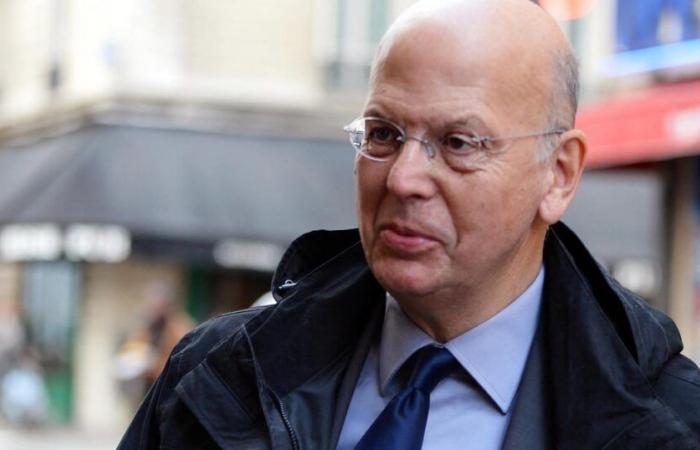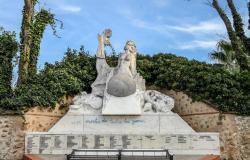FIGAROVOX/TRIBUNE – One year after the death of the conservative intellectual, on December 26, 2023, journalist Wandrille de Guerpel pays tribute to the intuitions he exposed in 2016 in a visionary essay.
*Wandrille de Guerpel is a journalist at Current valuess and author with Emmanuel Rechberg of The true cost of progressivism: Associations, media, NGOs, institutions, investigation into a financial chasm (Gunner, 2024).
In The People’s Cause Patrick Buisson mixed the political pamphlet with intimate confidences, to examine a France adrift. There he revived the memory of a people betrayed by their intellectual, political and financial elites, and reduced to silence in the tumult of globalization. This book was not only a retrospective, it was a manifesto, a charge against collective amnesia. In the ambient institutional noise, his teachings find a particular echo today.
The essayist did not bother with detours: he declared war on this globalized caste which, under the pretext of progress, sacrificed the soul of the country. With inspired verve, he summoned the specters of the French Revolution – without one being able to attach the label of revolutionary to him – and of the great workers’ struggles to remind us that the “people” was an entity that was both carnal and symbolic, both fragile and powerful.
It revealed a cruel paradox: the champions of happy globalization, in their technocratic headlong rush, cut themselves off from the realities they claimed to govern. Citizens were anchored in a daily life often devastated by industrial decline and cultural dislocation. The “people” described by Buisson were not a shapeless mass, but a sum of pains and aspirations that successive powers had chosen to ignore.
With biting irony, Buisson decapitated the traditional parties. The right, according to him, had lost its soul by denying its historical foundations in favor of a rootless liberalism, like his traveling companion Nicolas Sarkozy. As for the left, it had wallowed in a universalist morality disconnected from what some call “real”. These political forces, once rivals, then joined in the same complacency with regard to globalization, thus opening the way to a populism of revenge.
Buisson denounced the “religion of the new”, which was only a mask to disguise the forgetting of roots and the abandonment of the most vulnerable.
Wandrille de Guerpel
The “Buisson line” asserted itself as a compass for those who wanted to reconnect with the profound designs that crossed the country. It combined reaffirmation of identity and social solidarity. But the author was not content with outlining a theory: he put a scalpel to the errors of Nicolas Sarkozy, whose reign had failed to translate popular aspirations into action. Fifteen years later, Emmanuel Macron seems to be taking the same tangent.
From this implacable observation, Buisson drew key principles. The French yearned for leaders who spoke with their guts as much as their minds. Technocratic eloquence had to give way to historical foundations, capable of resonating with the “people of the invisibles”. In a world in search of benchmarks, Buisson urged active transmission. He called for reinvesting national symbols, for vibrating the strings of common heritage. If the left had abandoned this fight, the right had to reinvest it, not by imitating collectivist recipes, but by offering economic and cultural security on a national scale.
Those whom Buisson called “demolition contractors”, using Léon Bloy’s formula, embodied, according to him, a pathology of our time: the systematic destruction of everything that preceded us. Behind the discourse of progress was a cold and cynical enterprise of cultural leveling. Buisson denounced this “religion of the new”, which was only a mask to disguise the forgetting of the roots and the abandonment of the most vulnerable. In response, he pleaded for “solidarity patriotism”, a balance between openness to the world and rootedness. Everyone will have understood that progress should not be synonymous with dispossession.
Also read
“The union of the rights according to Patrick Buisson, a political strategy based on the long history of mentalities”
Implicitly, The People’s Cause was an ode to the transmission of our Christian heritage, almost written for us, humble contemporaries. Buisson reminded us that the future could only be written by honoring what the past had left us. In an era drunk with haste and amnesia, this message resonates like a call for action. Thus, Buisson signed a book which was not just a collection of bitter observations. He held up a mirror to a France in search of itself, an invitation to be reborn by drawing on its own strengths. This reading, both harsh and luminous, is aimed at those who refuse to see their country sink into the twists and turns of impotence. A true declaration of love to a France which doubts, but which can still hope.






